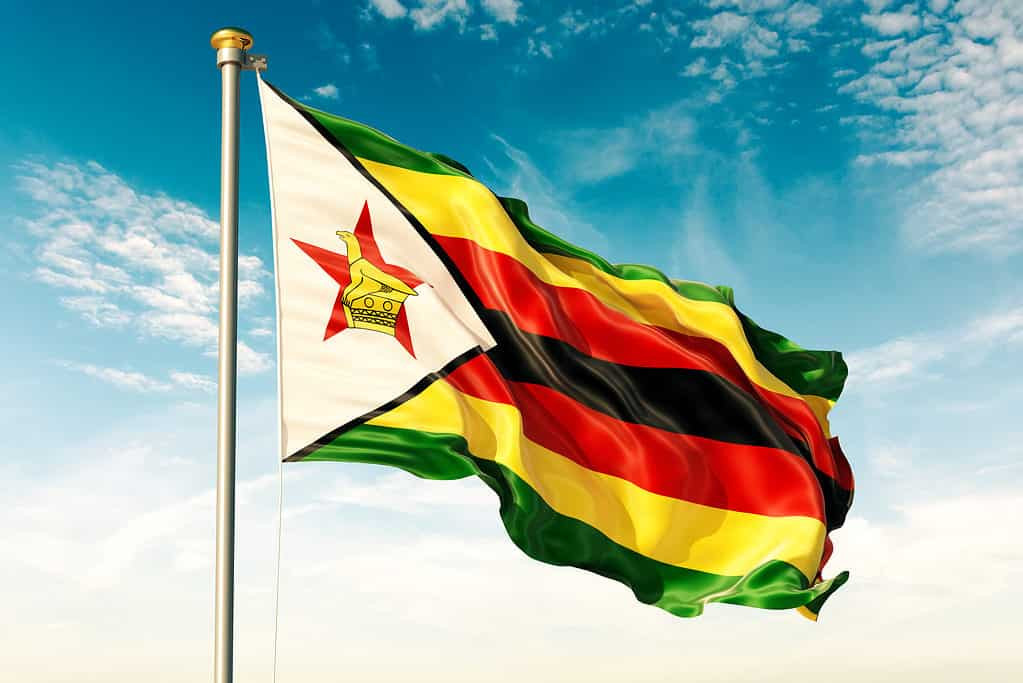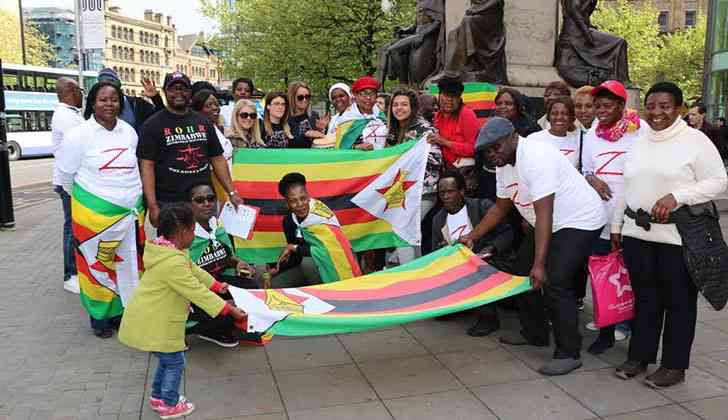
IN 1893 my ancestors raised the Union Jack in a place they called Salisbury, in the middle of what is now called southern Africa. That is 130 years ago and for the next 87 years this tiny group of white settlers ruled the country they called Rhodesia, in their own interests. Never more than 3% of the population, they dominated life here bringing with them their faith, the rule of law, modern banking and finance, infrastructure and business.
After a brief war when the indigenous people of this country attempted to drive these interlopers out and failed, things settled down until after the Second World War. Strange how that event in Europe had such far-reaching impacts on countries like ours. By 1949, black soldiers returning from the Second World War and the British campaign against the communists in Burma, began to see what white people could do to each other. Coupled to a handful of new leaders in the church and in education who felt that the indigenous people of the country were getting a bad deal, they started to flex their muscles and the nationalist movements were born.
After 70 years of peaceful co-existence since 1896 the first black person was shot dead in a riot. The second war of liberation was launched by armies formed by both main nationalist parties: Zapu and Zanu. By 1973 a full-scale guerilla war was underway with many thousands of men and women under arms. I met the Prime Minister Ian Smith that year with a number of friends and colleagues and told him that he might win all the battles, but he would lose the war. We urged him to settle and agree a transition to majority or democratic rule. He rejected our advice and after 1976, lost control of the transition.
We came to independence in 1980, a small country with a population of seven million; very little debt and a strong currency, an infrastructure which served our limited needs and an economy employing perhaps half our adult population with the second highest incomes regionally after South Africa. We had a good education system accommodating 100% of the white population and probably 25% of the rest. Missions educated 95% of the black population and our universities took in about 6 000 students a year.
Over the next decade 80% of the white population left the country. We built another 8 000 schools and 60 hospitals, agricultural output doubled and we reduced the number of white farmers from 6 000 at independence to 4 200. The land under large-scale commercial farming was reduced from 16 million hectares to 12 million. But all of this at a cost and our national debt rose from a mere US$700 million in 1980 to well over US$5 billion. By 1990 we had 95% of all our children in school and were approaching a point where we had the highest literacy rate in Africa. But we failed to grow our economy at a pace that would support our ambitious social programme.
Despite all our problems we have held elections roughly every five years since independence. I voted and found my polling station well organised, clean and helpful. It took me perhaps five minutes.
In hindsight it is difficult to imagine that we fought each other for 16 years in a civil war to secure this right for everyone.
Perhaps, at 43 years, it is time for a stock take. How have we done with what we went to war for back in 1964?
- Abwa commissions milk plant
- In the groove: Has inflation hit the music markets?
- Zimbos snub Zec voter registration programme
- Business opinion: Brand customisation
Keep Reading
Perhaps the first thing to note is that we have maintained a sort of democracy. Under the late former President Robert Mugabe, the record was messy, he maintained a form of one-party rule under a classical strongman leadership until he was challenged by MDC. Messy is perhaps a mild description for what was a ruthless regime, guilty of many human and political rights abuses, some on a large scale. Since 2017 when Mugabe was forced into retirement, the situation has improved significantly and I do not think that sufficient recognition has been given to the government by the international community.
It is difficult to separate the economic record from politics and this is true in Zimbabwe as anywhere else. The first decade was managed reasonably well, the economy grew by about 5% per annum and our fiscal deficit to about 9%, well above sustainable levels and increasing our debt. The second decade maintained this position until 1997 when we made some serious misjudgements and this triggered a downwards spiral which was to dominate the next 10 years until 2009. By 2008, Zimbabwe was a failed State in every respect.
It is difficult to describe the condition of the country in 2008, 150 000 cases of cholera in Harare, 75% of the population on food aid, five million adults had left the country for greener pastures and three million died an early death through poverty and disease. Our gross domestic product (GDP) collapsed and inflation was at world record. Our life expectancy collapsed from 64 years at independence to 37 years. Infant mortality and mortality levels among women in childbirth were at record levels. Electricity consumption halved and incomes were at very low levels. Employment levels halved to less than 6% of the population.
The next decade was dominated by the Government of National Unity, virtually imposed on the country by the region led by South Africa. We dollarised and economic recovery was fast, economic output rose 70% per annum for four years. When Zanu PF took back power in 2013, it led to a resumption of the same problems which had dominated until 2008. By 2017, we were again in deep trouble economically.
Mugabe’s removal in November 2017 led to a new government promising a great deal and did not deliver. The main reason for this was internal divisions over the way forward. In 2018, the country went to the polls and Zanu PF was returned to power. The big change here was that the new president was able to secure full control over the levers of power and dominate the agenda. This time the reform programme was clearly set out in the “Transitional Reform Programme” which was implemented over the next 30 months.
Now here we are, at the start of a new government which will run the country until the next election in five years. The omens look good to me — we have a new crop of legislators in the Parliament, many new councillors at local government level, even a new President of the Council of Chiefs, a Ndebele Chief who promises big changes. The same national President, but a strong opposition with a young charismatic leader, who I hope this time will settle down and become an effective opposition leader.
We are not short of challenges, but at least the last government sorted out the budget problems that hindered progress in earlier decades. We have a balanced budget; our civil service salary bill is under control and we have started to sort out our infrastructure. Our economy is growing strongly, probably the highest growth rate in Africa, our exports are also expanding at over 30% per annum and we have a balance of payments surplus. The problem of inflation is now coming under control and should be at an acceptable level by year end.
But our GDP per capita is still below what it was at independence in 1980, our State operated and funded health and education systems are in shambles. Corruption and State capture is still prevalent and our agriculture is struggling. Our infrastructure needs billions of dollars in new investment. But I think we are slowly getting back on our feet.
Eddie Cross is an economist and former Bulawayo South legislator. He writes here in his personal capacity.










